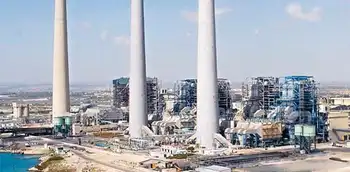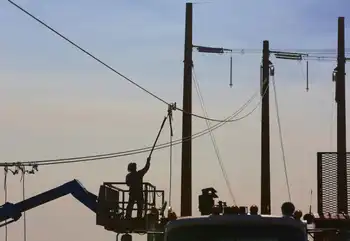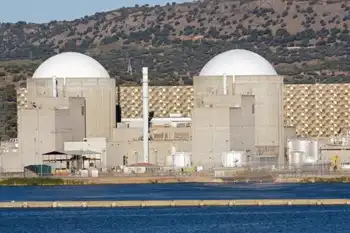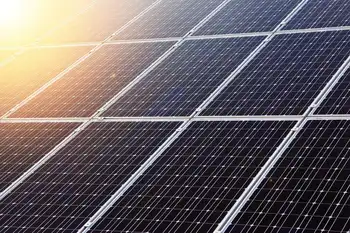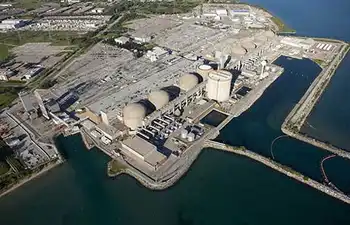Israel Electricity Reform Competition opens the supply segment to private suppliers, challenges IEC price controls, and promises consumer choice, marginal discounts, and market liberalization amid natural gas generation and infrastructure remaining with IEC.
Key Points
Policy opening 40% of supply to private vendors, enabling consumer choice and small discounts while IEC retains the grid.
✅ 40% of retail supply opened to private electricity suppliers
✅ IEC keeps meters, lines; tariffs still regulated by the authority
✅ Expected discounts near 7%, not dramatic price cuts initially
"See the pseudo-reform in the electricity sector: no lower prices, no opening the market to competition, and no choice of electricity suppliers, with a high rate for consumers despite natural gas." This is an advertisement by the Private Power Producers Forum that is appearing everywhere: Facebook, the Internet, billboards, and the press.
Is it possible that the biggest reform in the economy with a cost estimated by Israel Electric Corporation (IEC) (TASE: ELEC.B22) at NIS 7 billion is really a pseudo-reform? In contrast to the assertions by the private electricity producers, who are supposedly worried about our wallets and want to bring down the cost of electricity for us, the reform will open a segment of electricity supply to competition, as agreed in the final discussions about the reform. No less than 40% of this segment will be removed from IEC's exclusive responsibility and pass to private hands.
This means that in the not-too-distant future, one million households in Israel will be able to choose between different electricity suppliers. IEC will retain the infrastructure, with its meter and power lines, but for the first time, the supplier who sends the monthly bill to our home can be a private concern.
Up until now, the only regulatory agency determining the electricity rate in Israel was the Public Utilities Authority (electricity), i.e. the state. Now, in the framework of the reform, as a result of opening the supply segment to competition, private electricity producers will be able to offer a lower rate than IEC's, with mechanisms like electricity auctions shown to cut costs in some markets, while IEC's rate will still be controlled by the Public Utilities Authority (electricity).
This situation differs from the situation in almost all European countries, where the electricity market is fully open to competition and the EU is pursuing an electricity market revamp to address pricing challenges, with no electricity price controls and free switching by consumers between electricity producers, just as in the mobile phone market. This measure has not lowered electricity prices in Europe, where rates are higher than in Israel, which is in the bottom third of OECD countries in its electricity rate.
Regardless of reports, supply will be opened to competition and we will be able to choose between electricity suppliers in the future. Are the private electricity producers nevertheless right when they say that the electricity sector will not be opened to "real competition"?
What is obviously necessary is for the private producers to offer a substantially lower rate than IEC in order to attract as many new customers as possible and win their trust. Can the private producers offer a significantly lower rate than IEC? The answer is no, at least not in the near future. The teams handling the negotiations are aware of this. "The private supplier's price will not be significantly cheaper than IEC's controlled price; there will be marginal discounts," a senior government source explains. "What is involved here is another electricity intermediary, so it will not contribute to competition and lowering the price," he added.
There are already private electricity producers supplying electricity to large business customers - factories, shopping malls, and so forth - at a 7% discount. The rest of the electricity that they produce is sold to the system manager. When supply is opened to competition, it can be assumed that the private suppliers will also be able to offer a similar discount to private consumers.
Will a 7% discount cause a home consumer to leave reliable and familiar IEC for a private producer, given evidence from retail electricity competition in other markets? This is hard to know.
#google#
Why cannot private electricity producers offer a larger discount that will really break the monopoly, as their advertisement says they want to do? Chen Herzog, chief economist and partner at BDO Consulting, which is advising the Private Power Producers Forum, says, "Competition in supply requires the construction of competitive power plants that can compete and offer cheaper electricity.
"The power plants that IEC will sell in the reform, which will go on selling electricity to IEC, are outmoded, inefficient, and non-competitive. In addition, the producer will have to continue employing IEC workers in the purchased plants for at least five years. The producer will generate electricity in IEC power stations with IEC employees and additional overhead of a private producer, with factors such as cost allocation further shaping end-user rates. This amounts to being an IEC subcontractor in production. There is no saving on costs, so there will be no surplus to deduct from the consumer price," he adds.
The idea of opening supply to electricity market competition on such a large scale sounds promising, but saving on electricity for consumers still looks a long way off.
Related News






